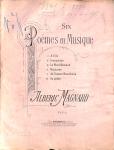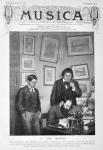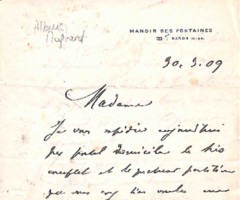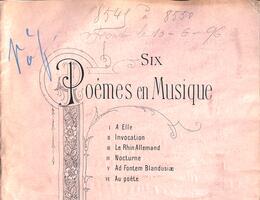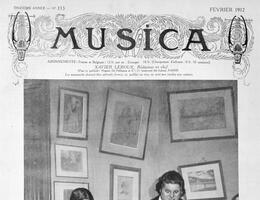Albéric MAGNARD
1865 - 1914
Composer
After graduating in law, Magnard decided to devote himself to music after hearing Tristan und Isolde at Bayreuth in 1886. A pupil of Dubois, Guiraud and Massenet at the Paris Conservatoire, he won first prize for harmony in 1888, then continued his studies with d’Indy. In 1896, he became professor of counterpoint at the Schola Cantorum, where he taught Déodat de Séverac. An independent-minded and uncompromising man who refused the backing that could have secured him the post held by his father (editor of the Figaro), he published his own works—even if this hindered their distribution. His partial deafness also contributed to his social isolation. When war broke out, he was in Baron, in the Oise department, where he had moved in 1904. He died when his house was set on fire after he shot at German troops. Although he composed several stage works (Yolande, Bérénice and Guercœur, his operatic masterpiece), he gave the best of himself in his four symphonies and his chamber music. His preface to Bérénice is revealing: “My score is written in Wagnerian style. Lacking the necessary genius to create a new operatic form, I have adopted from existing styles the one that best suited my entirely classical tastes and my entirely traditional musical knowledge. I merely tried to come as close as possible to pure music.” Magnard was influenced not only by Wagner but also by Beethoven and the aesthetics of the Schola. Cultivating a dense counterpoint and a sustained lyricism, Magnard was the complete opposite of Debussy, whose rhapsodic harmonic and orchestral style he eschewed.

